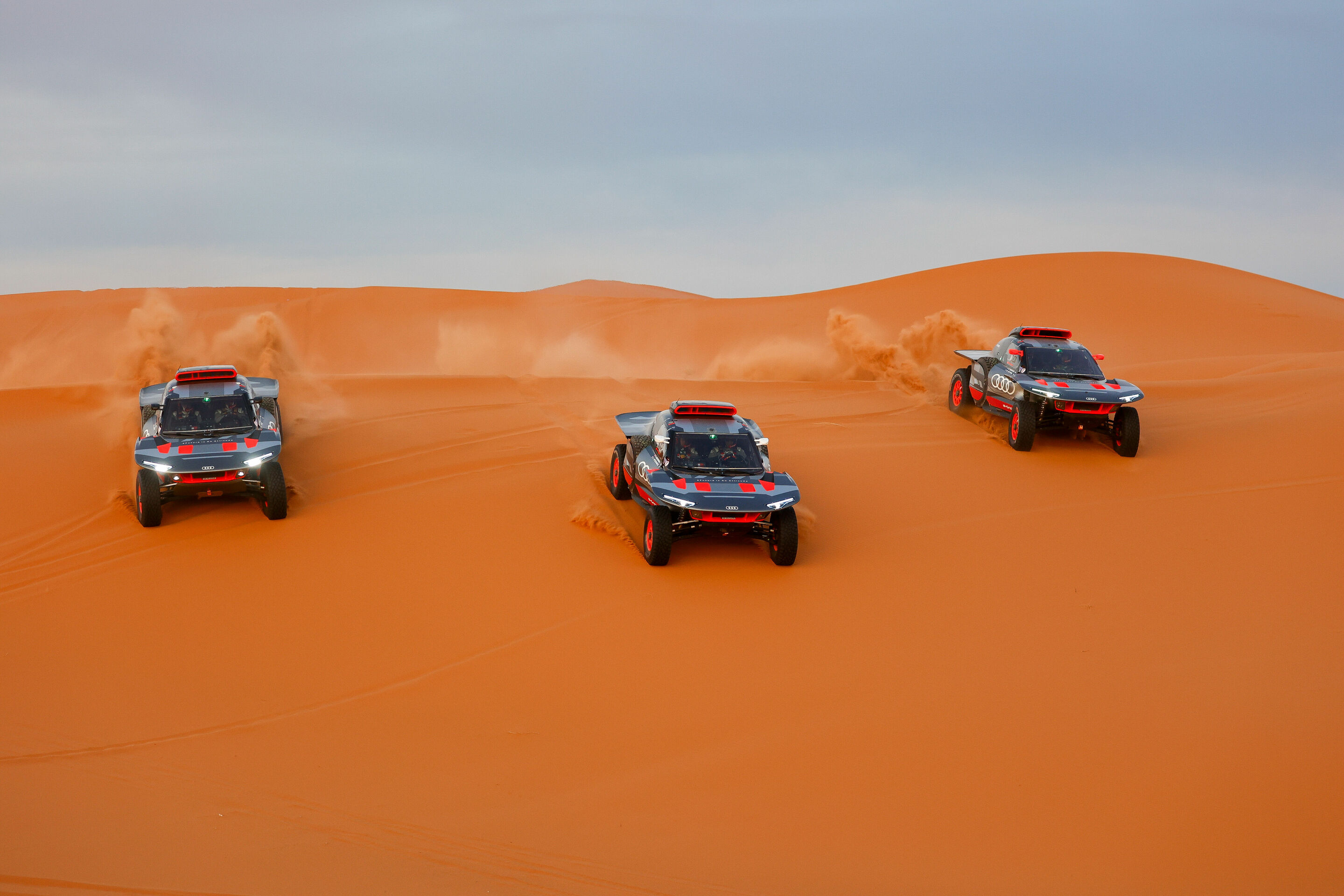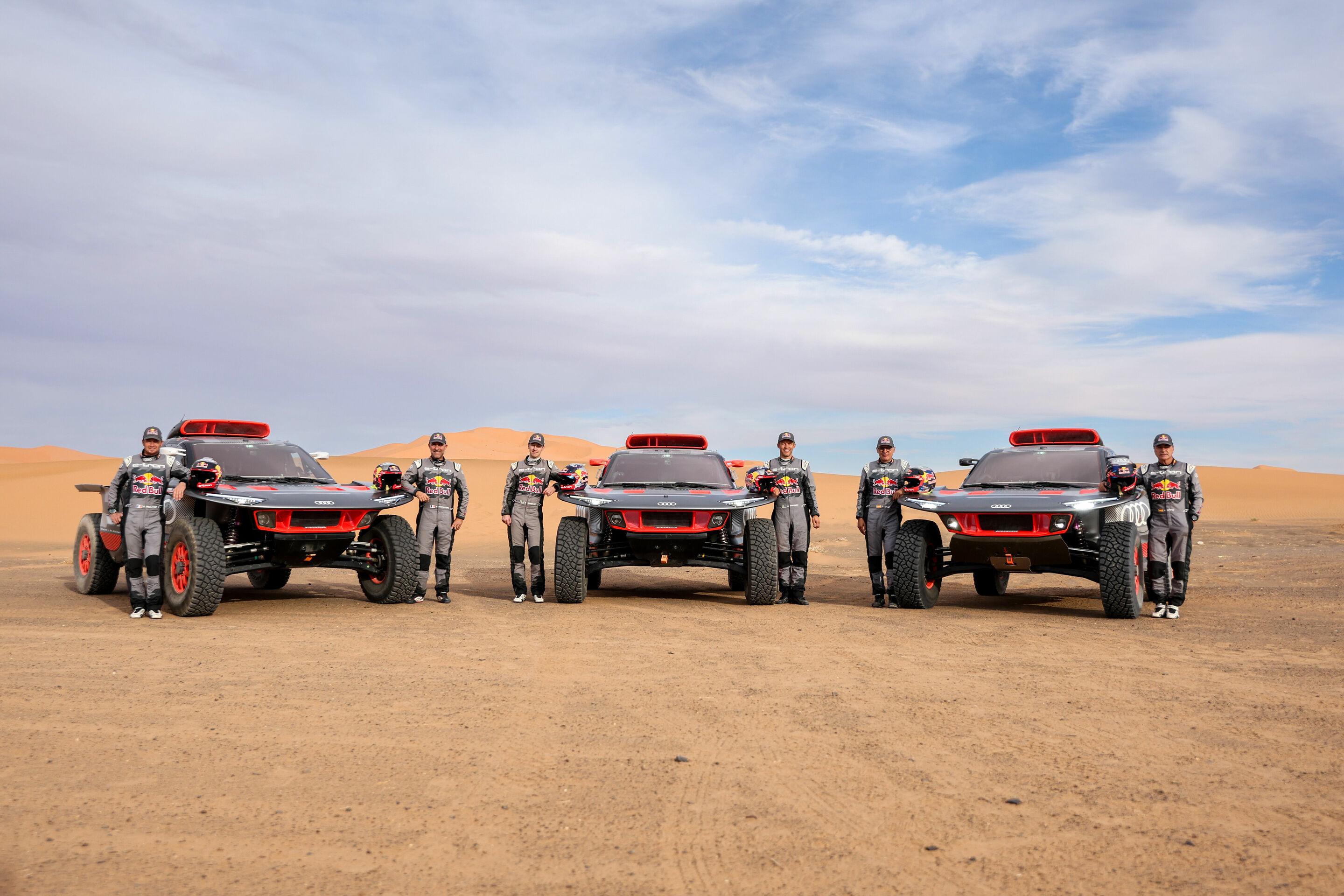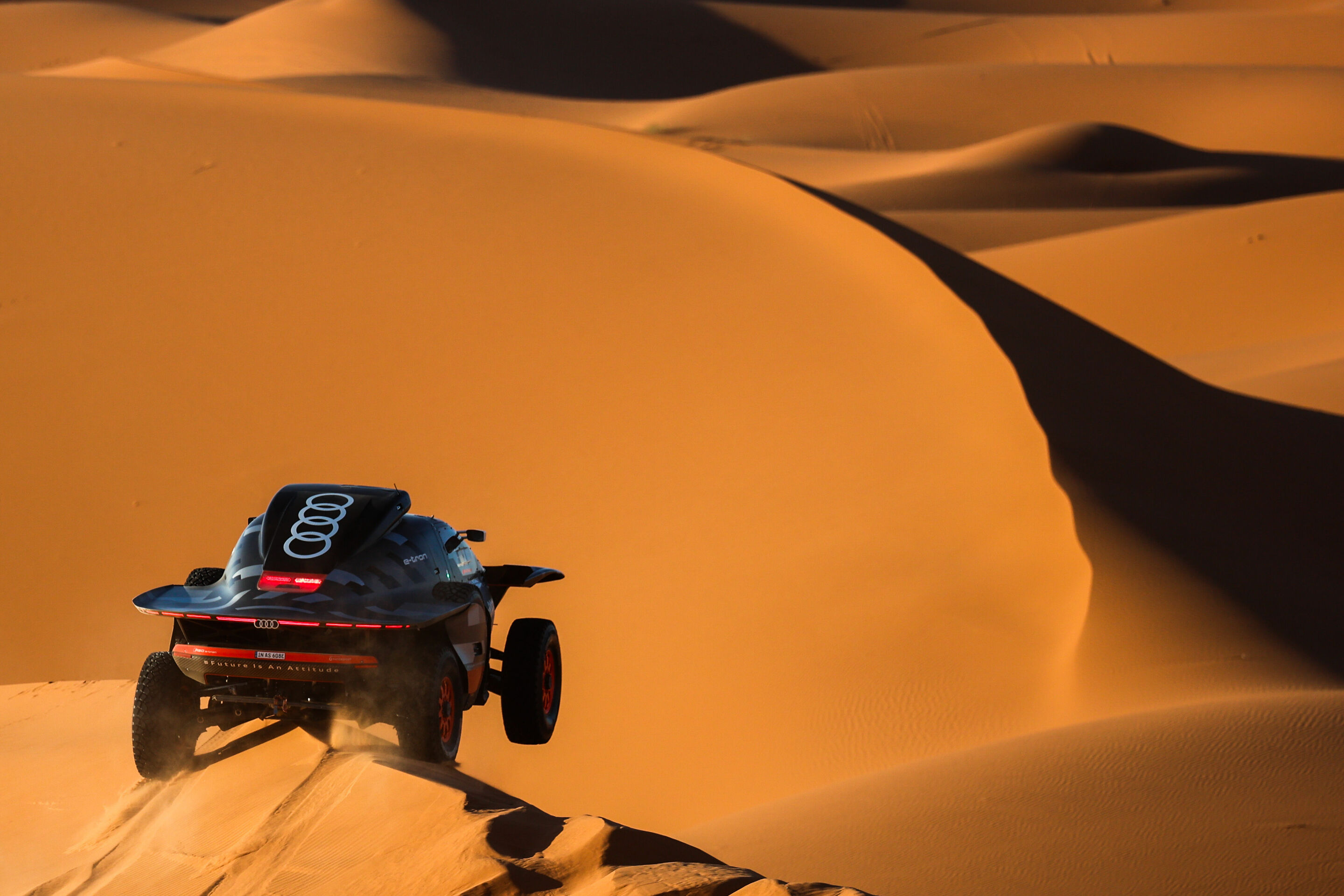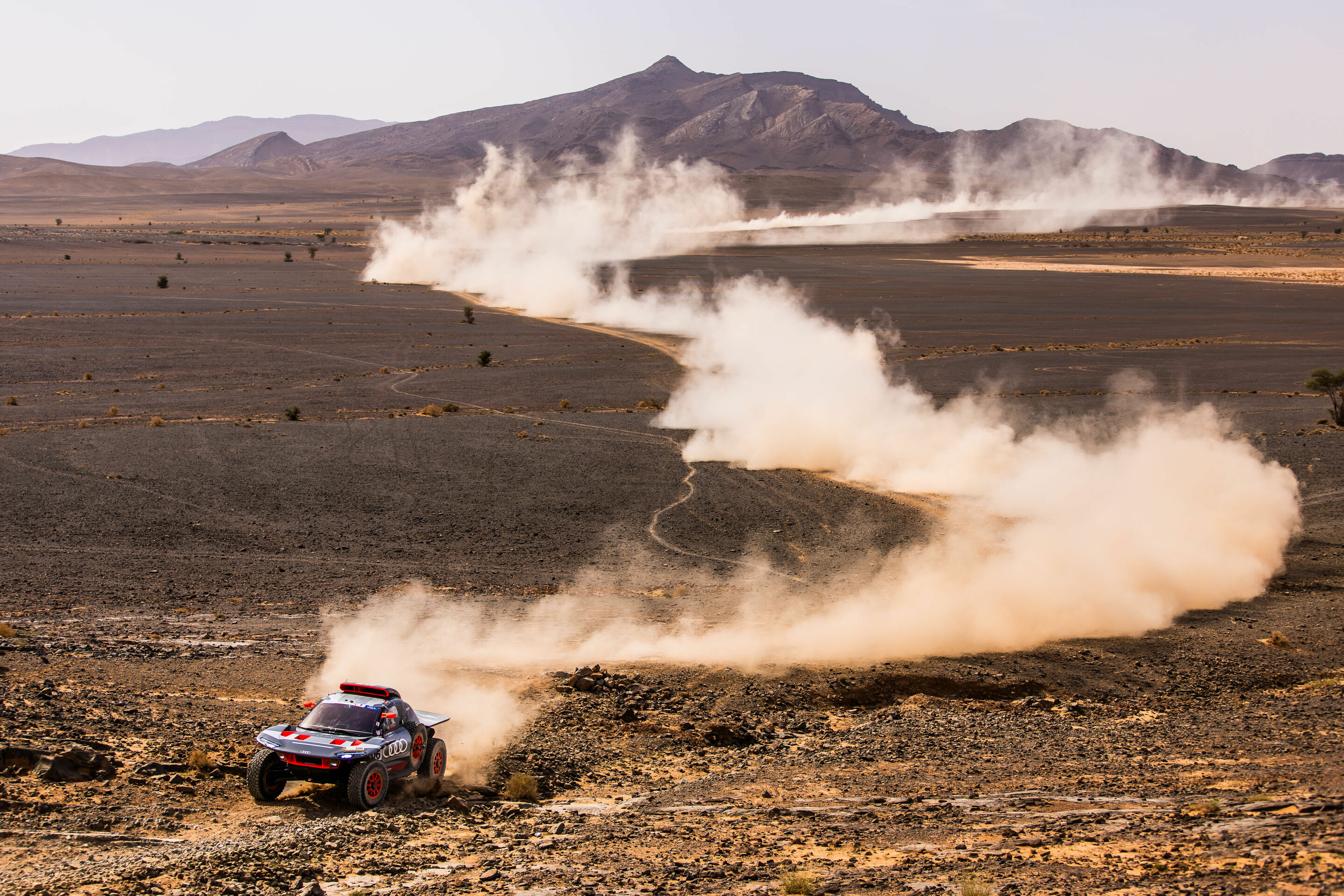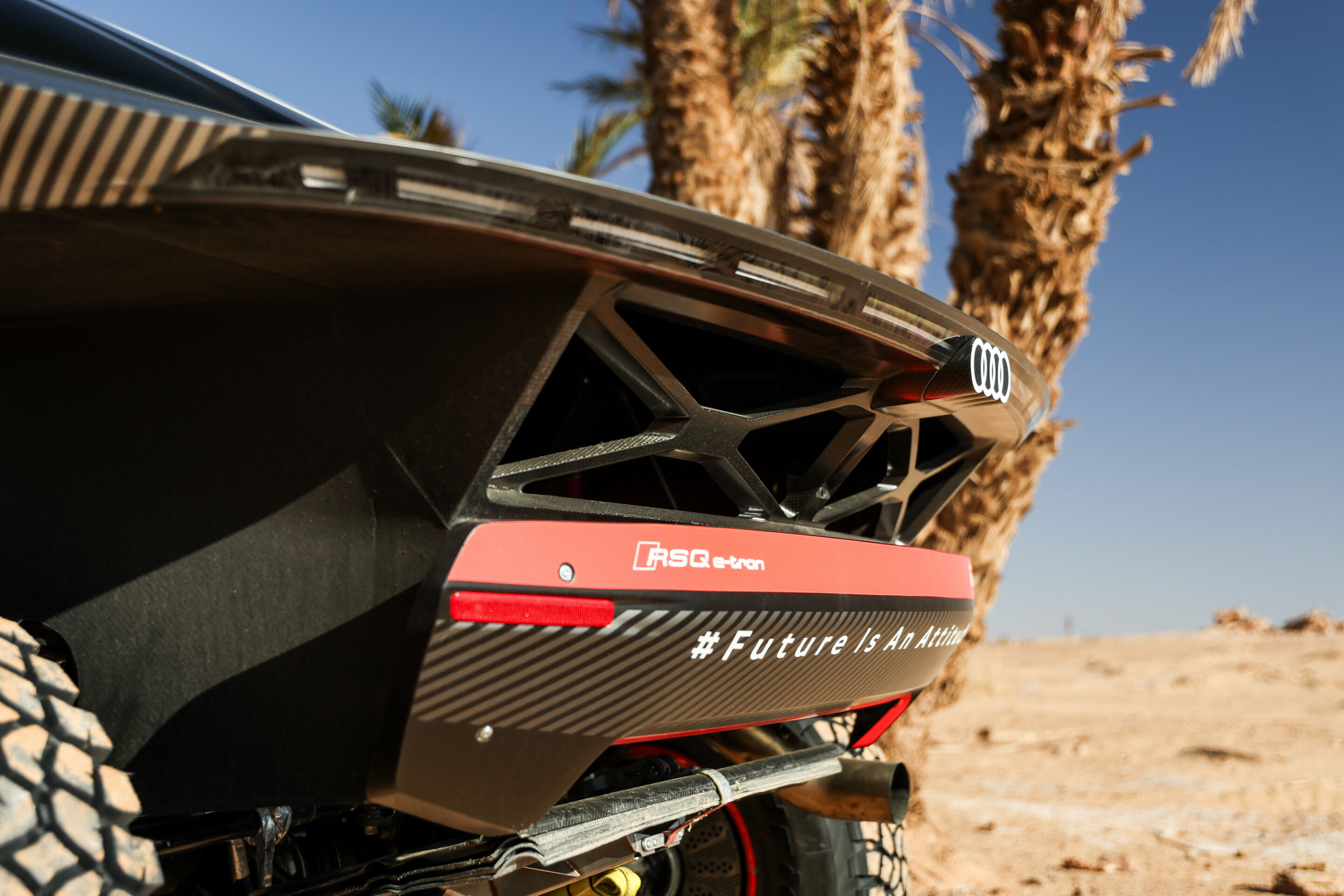Audi points the way to the future at the Dakar Rally
Back to overviewThe Audi RS Q e-tron is causing a sensation with its electric drive. The prototype for the T1U class embodies a pioneering low-emission concept in the harshest environment imaginable. The electric drive with high-voltage battery and energy converter has to prove itself in a desert environment that places the highest demands on energy consumption and reliability. Thanks to a residue-based reFuel fuel for the energy converter, Audi is reducing carbon dioxide emissions by 60 percent. In January 2024, three Audi RS Q e-tron cars with this advanced concept will be competing in the Dakar Rally for the third time.
“We are consistently applying our decarbonization strategy in motorsport as well,” says Oliver Hoffmann, Board Member for Technical Development at Audi. “Our company’s lead technologies include battery-electric models that are powered by renewable electricity. At the same time, combustion engines can be operated with renewable fuels in a low-emission and climate-friendly way. We have combined both ideas in the Audi RS Q e-tron. It is a highly efficient drive system that is second to none.” The reFuel for the energy converter uses 80 percent residue-based products. They do not compete with foodstuffs.
In just two years, Audi has proven what the drive is capable of in cross-country rallying: its debut in 2022 saw four stage wins and 14 top 3 results in the daily rankings. Following overall victory in the Abu Dhabi Desert Challenge six weeks later, Audi prepared for its second Dakar start. In addition to two stage wins and 14 results in the top three, the innovative prototype led the 2023 Dakar Rally for three days for the first time. “We have shown the potential of our concept,” says Head of Audi Motorsport Rolf Michl. “At the same time, we have great respect for a rally that always has surprises in store. It is and remains one of the greatest adventures in motorsport with a length of almost 8,000 kilometers. Hundreds of desert kilometers every day through unfamiliar terrain put a huge strain on man and machine. The entire team has made the best possible preparations with the three driver line-ups.”
The Dakar project is the latest milestone in Audi’s electrification strategy in motorsport. It began in 2012 in the sports prototype program with the Audi R18 e-tron quattro. The diesel hybrid sports car won the FIA World Endurance Championship (WEC) in 2012 and 2013 and, from 2012, the 24 Hours of Le Mans three times in succession. In 2017, a Formula E program replaced the endurance program. After seven years, the Audi Sport ABT Schaeffler team was the most successful team in Formula E history with a total of 47 podium finishes – including 14 victories. Particular highlights include winning the drivers’ championship in 2017 and the team championship in its debut season as a factory team in 2018. The Dakar program continues the idea of electric drives with the Audi RS Q e-tron in cross-country rallying.
